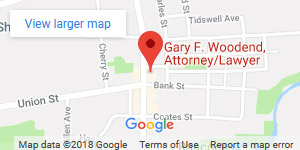
If your loved one has died in New Jersey, and there’s a significant estate, or assets not jointly titled, the estate will have to go through the probate process to ensure the orderly distribution of property. Whether you are the executor or a potential beneficiary, it’s helpful to have a basic understanding of how the probate process works.
Step One—Determining Whether You Need to Take the Estate to Probate
The purpose of the probate process is to ensure the orderly distribution of assets owned by the deceased at death. Because the deceased can no longer make decisions or take actions with respect to the property, the court needs to oversee the distribution to ensure that it’s in compliance with the wishes of the deceased. Accordingly, certain property can pass without the intervention of the probate court:
- Property jointly held at the time of death—Under law, property owned in joint tenancy or tenancy by the entirety passes to all other joint owners by operation of law. That means that it passes automatically, without need for any legal proceeding or document.
- Property specifically designated to a named beneficiary outside of a will—This includes life insurance proceeds, retirement accounts and payable on death bank accounts
- Assets held in a trust—A trust is an independent legal entity, with the capacity to own property. Accordingly, any property owned by or held in trust at the time of death is technically not owned by the decedent, and its ownership is unaffected by the person’s death
Contact Our Office
At the law offices of Gary F. Woodend, MBA, JD, we have protected the rights of hundreds of New Jersey residents in probate and estate matters. We have the knowledge, skill and experience to handle complex, multimillion dollar estates. To schedule a confidential consultation, call us at 609-654-5489 (toll-free at 888-336-8417) or contact our office online.




